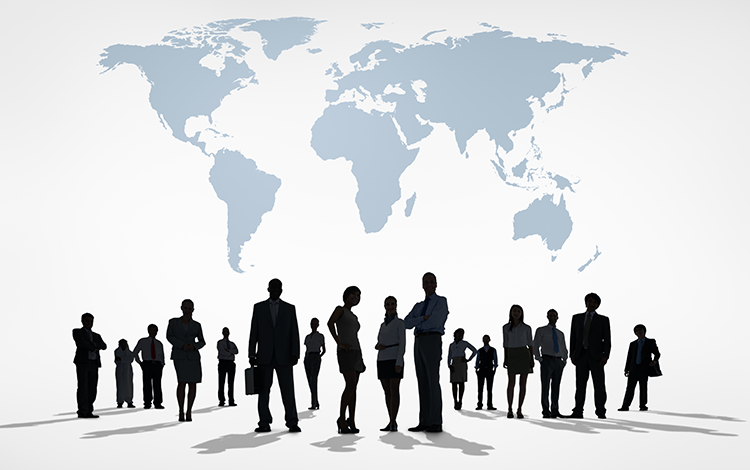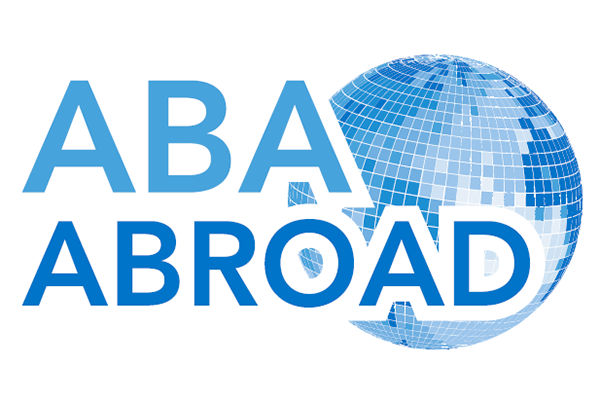How are the ABA's international ROLI programs adjusting to a global pandemic?

Images from Shutterstock.com.
Communities around the world are reeling from the repercussions of the novel coronavirus pandemic and measures taken to contain it. Democratic backsliding threatens to derail significant development gains we have witnessed that have provided fair and equitable access to justice and measures to build accountable and inclusive justice institutions. Immediate responses are needed to address the increased legal needs in the developing world, particularly among vulnerable segments of the population including women and girls (who constitute 70% of the workers in the health and social sector, and often care for the sick in communities and households), those dependent on the informal economy, persons with disabilities, displaced persons and the elderly.
The architecture of human rights is already being stressed and in many places, assaulted. We have noted troubling signals that authoritarians are using the pandemic to target opposition and scapegoat marginalized groups. Increases in pretrial detention have stressed already overcrowded detention facilities and prisons. Movement restrictions and closures of key community foundations aimed to stop the spread of the coronavirus may be making violence in homes more frequent, more severe and more dangerous.

In the initial days of uncertainty after various travel restrictions, shelter at home and other social distancing practices were mandated, I was concerned about whether our global programs would be able to continue to operate effectively, or even at all. After all, the American Bar Association’s Rule of Law Initiative implements programs in some of the most challenging environments in the world, in both densely populated cities and remote villages where health care facilities and resources are lacking. In some locations, ROLI is helping governments and civil societies rebuild after decades of conflict. A pandemic could be the match that sets fire to the remarkable progress we have seen.
How would our talented local staff be able to reach remote populations? What could they do to address government officials who found the pandemic an opportunity to clamp down on citizen’s fundamental rights? How would they be able to ensure, despite conditions being exacerbated in the face of even more scarce resources and diverted attention, people were able to receive legal services and access justice?
My fears were quickly allayed. What I saw in those early days of the pandemic crisis was not confusion, chaos or disorder; rather, our exceptional Washington, D.C.-based staff worked late nights and early mornings with our field offices to ensure minimal disruptions in project operations. Many smart and resourceful ROLI staffers came together remotely to brainstorm how ROLI could continue to serve its mission under increasingly restrictive environments.
I should have known our teams would seamlessly adapt on the fly; after all, ROLI has repeatedly demonstrated capacity to quickly mobilize and adapt during times of crisis, conflict, natural disaster and pandemics (including recent Ebola outbreaks in Liberia and the Democratic Republic of the Congo). We are once again rising to the occasion to respond to the growing legal needs of people worldwide arising from the coronavirus pandemic.
We have asked our global offices to comply with all local and national laws, declarations and efforts to limit the spread of the COVID-19 virus. Our programs have adjusted operations to ensure safety, but they continue to serve their communities during this time of need. In the early stages of the crisis, we took swift action to adapt our operations for full-time telecommuting. Most ABA ROLI staff are now working remotely with each other and with our partners on the ground in the Philippines, Colombia, Uzbekistan, Tunisia and the Central African Republic, among dozens of other countries.
Despite the challenges we have seen, the pandemic also provides opportunities for ROLI to further engage civil society groups to mobilize responses aimed to reinforce democratic vitality and address procedural reforms needed to ensure citizens fair and equitable access to justice. In some places, effective government responses may shore up trust in government. Disruptions to court operations may spur needed innovations in court administration and management.

Now more than ever, the ability to know, use, and shape the law is critical. Access to health care and various forms of relief hinge on the ability to know one’s rights and navigate complex systems. As emergency actions escalate, citizens must ensure governments do not use the pandemic as an excuse to entrench unjust or discriminatory policies. Addressing these needs will require ROLI to adapt to the evolving legal needs of communities while operating under challenging restrictions posed by movement restrictions and quarantine conditions.
ROLI is also harnessing the resources and specialized expertise of the ABA’s practice groups, remote training technology and infrastructure, and 400,000+ members to support the needs of the moment and the developing world’s public health future. We currently operate in more than 30 countries and benefit from long-standing relationships with foreign ministries, judiciaries, universities and bar associations. ROLI enjoys an active Alumni Network of more than 1,700 legal professionals, judges, scholars and human rights experts who have provided past pro bono services that can be tapped to fill critical needs as the pandemic spreads across the globe.
ROLI also is leveraging a number of critical resources the ABA has developed to assist American lawyers, including the newly appointed Task Force on Legal Needs Arising Out of the 2020 Pandemic. The task force includes experts in disaster response; health law; insurance; legal needs of families to protect basic human needs such as food, shelter, medical and employment benefits; criminal justice; domestic violence; civil rights; and social justice. Our counterparts in the developing world will benefit from the significant practice tools, manuals, resource kits and continuing legal education courses related to legal implications of COVID-19.
These significant assets and resources position ROLI to support our donors and foreign legal counterparts with competent, rapid assistance to respond to the pandemic crisis, including:
- Serving as a pipeline by which information about U.S. public and private legal measures, analysis, and innovation can be communicated abroad to our foreign partners;
- Providing remote legal support for NGOs and legal service providers based on best practice delivery models;
- Strengthening the operations of legal aid providers to protect the rights of the most vulnerable through rapid response subgrant funding and remote capacity building;
- Increasing aid to victims of gender-based violence, shelters, and social service providers in anticipation of spikes in intimate partner abuse and limited resources during the pandemic;
- Helping strengthen the capabilities of bar associations to respond to the legal challenges in their own legal jurisdiction;
- Assisting justice sector institutions to operate effectively during the crisis, utilizing e-government, virtual business platforms, social media, distance learning and adaptive management techniques;
- Investigating the contractual implications, effective work health-and-safety systems and strategies for workers, sites and the wider community that should be put in place to preserve business continuity and ensure the safety of workers;
- Counseling counterparts to ensure emergency measures issued to address the pandemic are reasonable and proportionate so as not to unduly infringe upon human rights and fundamental freedoms;
- Strengthening the right to access health care, the right to access information, the prohibition of discrimination in the provision of medical services, and the freedom from nonconsensual medical treatment;
- Ensuring quarantines or restrictions on the right to freedom of movement are proportionate, safe, respectful and are imposed in a nondiscriminatory way for legitimate aims;
- Working with judges, attorneys, and court personnel to plan for alternative arrangements for conducting business during the pandemic, including advisories to the public, the bar and court staff; remote court appearances for litigants; preserving due process rights despite court closures; preparing for potential backlogs; and coordinating with health authorities for emergency planning;
- Providing guidance/assistance to organizations in developing a Pandemic Influenza Continuity of Operations Plan or, if the organization already has a continuity plan, a Pandemic Virus Annex;
- Leveraging our offices and our networks of alumni abroad to support technical assistance efforts in ways that others without these assets can’t; and
- Serving as an on-the-ground source to our U.S. government partners about the condition and status of justice sector institutions and their compliance with human rights standards.
The combination of backlogged courts and underresourced legal aid systems is frightening in these contexts, yet we have seen rays of hope. We have witnessed that court operations, rules and traditional practices can be modified to keep people safe while still providing effective levels of care. Traditional systems based on personal appearances, crowded spaces, inefficient scheduling and management practices can and should be challenged. Some remote systems put in place during the pandemic may prove to be actually more efficient, user-friendly and cost-effective.
In those places where draconian quarantine laws have been abused to consolidate power and stifle dissent, citizen groups and human rights defenders have stepped up monitoring and reporting. Where the need for legal services and domestic violence protection has significantly increased, ROLI has partnered with local bar associations and private businesses to develop legal hotlines and establish emergency warning systems and safe ways for women to seek safety without alerting their abusers. During this pandemic, one thing has been certain: ROLI will continue to adapt and develop innovative solutions that result in meaningful impact in the places we work.

Chris Boeder is the director of business development at the ABA Rule of Law Initiative. Prior to ROLI, he worked in a variety of international development positions, both overseas and in Washington, D.C. He has an extensive legal aid and criminal justice background, having previously worked as a public defender and death penalty counsel in Chicago. He also served as a staff attorney with the ABA Standing Committee on Legal Aid and Indigent Defendants in 2006-2007. He obtained his JD from the DePaul College of Law in 1998.
• ABA Abroad is a column highlighting the work of the ABA’s Center for Global Programs, which comprises the Rule of Law Initiative, Center for Human Rights and the ABA’s presence at the United Nations. The views expressed herein have not been approved by the House of Delegates or the Board of Governors of the ABA and, accordingly, should not be construed as representing the policy of the American Bar Association.



